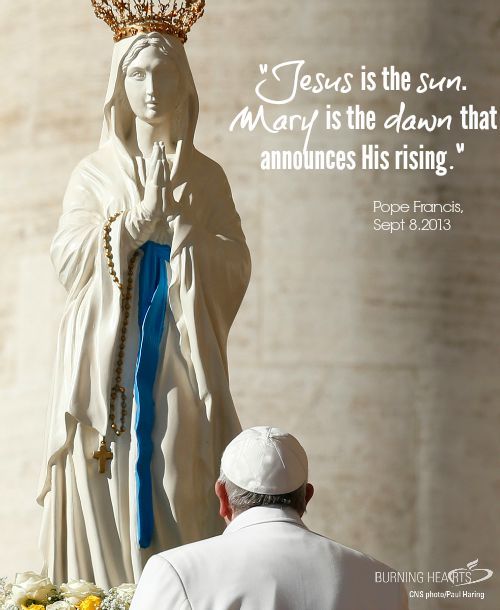The Making Disciples Today Blog has reflections to help you grow in your journey of missionary discipleship, reviews on recommended Catholic evangelization resources, and practical insight on how to evangelize in your daily life.
- Details
- Written by Kristin Bird
Did you know that Groundhog Day is a direct descendant of one of the most ancient feasts of the Church?
- Details
- Written by Connie Mayta
Parenting Lessons in Humility
Of all the great teachers in my life, my most surprising teachers have been my own children. Clearly, they do not help me gain basic knowledge or life skills (I do that for them), but they have opened up for me the path to virtuous living in ways that I could have never foreseen.Caring for my children has provided me with ample schooling in the virtues of patience, kindness and love, to name a few.
However, my children first taught me to practice humility, which was the gateway to desiring to grow in virtue and holiness at all.
- Details
- Written by Kristin Bird
During World Youth Day 2013, Pope Francis issued a challenge to today's church:
“[W]e need a church capable of walking at people’s side, of doing more than simply listening to them; a church that accompanies them on their journey; a church able to make sense of the 'night’ contained in the flight of so many of our brothers and sisters from Jerusalem; a church that realizes that the reasons why people leave also contain reasons why they can eventually return.
But we need to know how to interpret, with courage, the larger picture. Jesus warmed the hearts of the disciples of Emmaus.
It is important to devise and ensure a suitable formation, one which will provide persons able to step into the night without being overcome by the darkness and losing their bearings; able to listen to people’s dreams without being seduced and to share their disappointments without losing hope and becoming bitter; able to sympathize with the brokenness of others without losing their own strength and identity."
- Details
- Written by Burning Hearts Team
Along with the Lord’s Prayer, the Hail Mary is one of the most widely used prayers in the Catholic Church. The first half of the Hail Mary comes from Luke’s Gospel accounts of the Angel Gabriel’s annunciation to Mary that she was called to be the Mother of God’s Son (Lk 1:26-56).
St. John Paul II explains that although the Hail Mary is addressed to Our Lady, "it is to Jesus that the act of love is ultimately directed" (RVM, no. 26). Every time we recite the Hail Mary, we are repeating the words of Gabriel and Elizabeth. In doing so, we enter into the ecstatic joy of "heaven and earth" over the mystery of Christ: heaven, represented by Gabriel, and earth, represented by Elizabeth.
“Hail Mary, full of grace.”
This is the greeting the Angel Gabriel spoke to Mary of Nazareth. Gabriel proclaims that Mary is full of grace, meaning that she is a sinless woman, blessed with a deep union with God, who had come to dwell in her.
 Annunciation- Fra AngelicoIn awe over that profound mystery of his eternal God becoming a little embryo in Mary's womb, Gabriel greets Mary. The grace with which Mary is filled is the very life of God who is the source of all grace.
Annunciation- Fra AngelicoIn awe over that profound mystery of his eternal God becoming a little embryo in Mary's womb, Gabriel greets Mary. The grace with which Mary is filled is the very life of God who is the source of all grace.
Reflect: Allow yourself to greet Mary in the same way and to exult in the same joy in Mary that God had for her. Imagine yourself bowing with the deepest respect before our Queen and Mother - imitating the reverence shown to her even by such a great being as an archangel.





